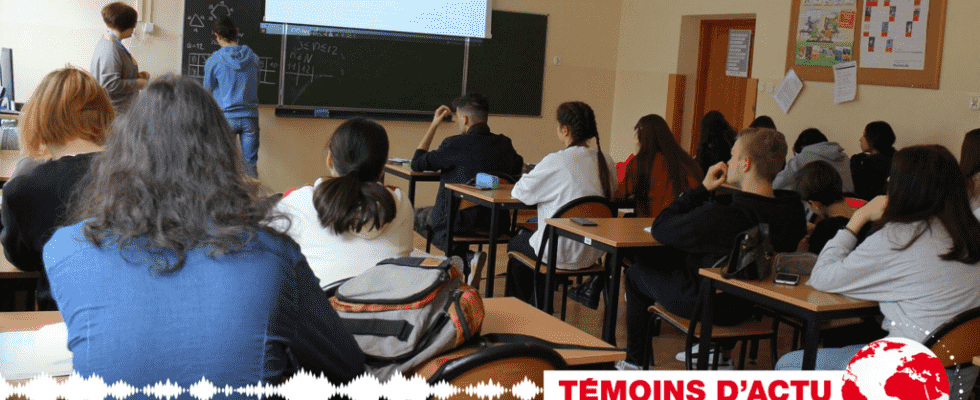Poland hosts by far the largest number of Ukrainian refugees. On the 50th day of the Russian offensive, more than 2.5 million have crossed the border, according to the UN High Commissioner for Refugees. Among them, more than 700,000 children. The Poles make it their duty to facilitate their integration. But how to give these children a semblance of normal life? Back from reporting, Agnieszka Kumor, journalist at RFI, tells.
In this episode of News cookiesAgniezska Kumor, explains that schooling is the priority for Ukrainian refugee children in Poland: “ The goal is to regain some semblance of normal life with the school routine. The head must be elsewhere than in the war “.
“ The integrationcontinues Agnieszaka, goes through language. Often in Ukraine middle and high school students learn Polish as a second language and in this situation it helps them a lot. Moreover, before the war, many Ukrainian children had already gone to Poland with their parents who had come to look for work. These serve as guides to facilitate communication. “.
The teaching staff also makes it a point of honor to welcome them as best as possible: ” The priority for them is to create a space in which the children feel safe. The idea is also to enhance their achievements. For example, in general, Ukrainian students are better in mathematics than Polish students. “.
Culture and theater are also means of making people forget the drama they are going through. ” In Warsaw, for example, theater companies have opened workshops where Ukrainian and Polish children get to know each other through improvisation. The important thing is really to do together and not separately. Do not stigmatize, do not put a refugee label on these children “.
Agnieszka Kumor also explains that this solidarity and this living together are obvious for the Poles because of their past history, especially during the Second World War: “ When the war in Ukraine started, it immediately resonated with them “. And to show Ukrainian children that an aftermath is possible, Agnieszka recounts this initiative by teachers in Warsaw: “Theidea arose to make a visit of Warsaw, almost touristic, by saying to them: “You see, our city was completely razed, destroyed, like your cities, like the localities from which you come. But Warsaw was rebuilt and your cities will be too. It will take time, but if you return to Ukraine, you will be able to say, it is possible to rebuild” “.
What also marked Agnieszka was the strong resilience of these children. ” At first glance, they often have a frozen face, but as soon as they come into contact with other children, they start talking, especially with the little ones, and despite the language barrier. They start heckling, regaining their childlike vitality “.
This integration also contributes to the reconstruction of the parents: “ The teachers I have met tell me that children recover more quickly from the trauma of war than their parents, as if they wanted to pass on something to them so that they too can heal. “.
►Also listen: Ukrainian refugee children in Poland
Subscribe to “News Witnesses”
News cookies is available to listen to on all podcast platforms: Apple Podcasts, Spotify, Deezer, Podcast Addict, Google Podcasts, TuneIn or any other application using the RSS feed.
If you like this podcast, give it 5 stars and post a comment on these applications so that it is visible and therefore even more listened to.
